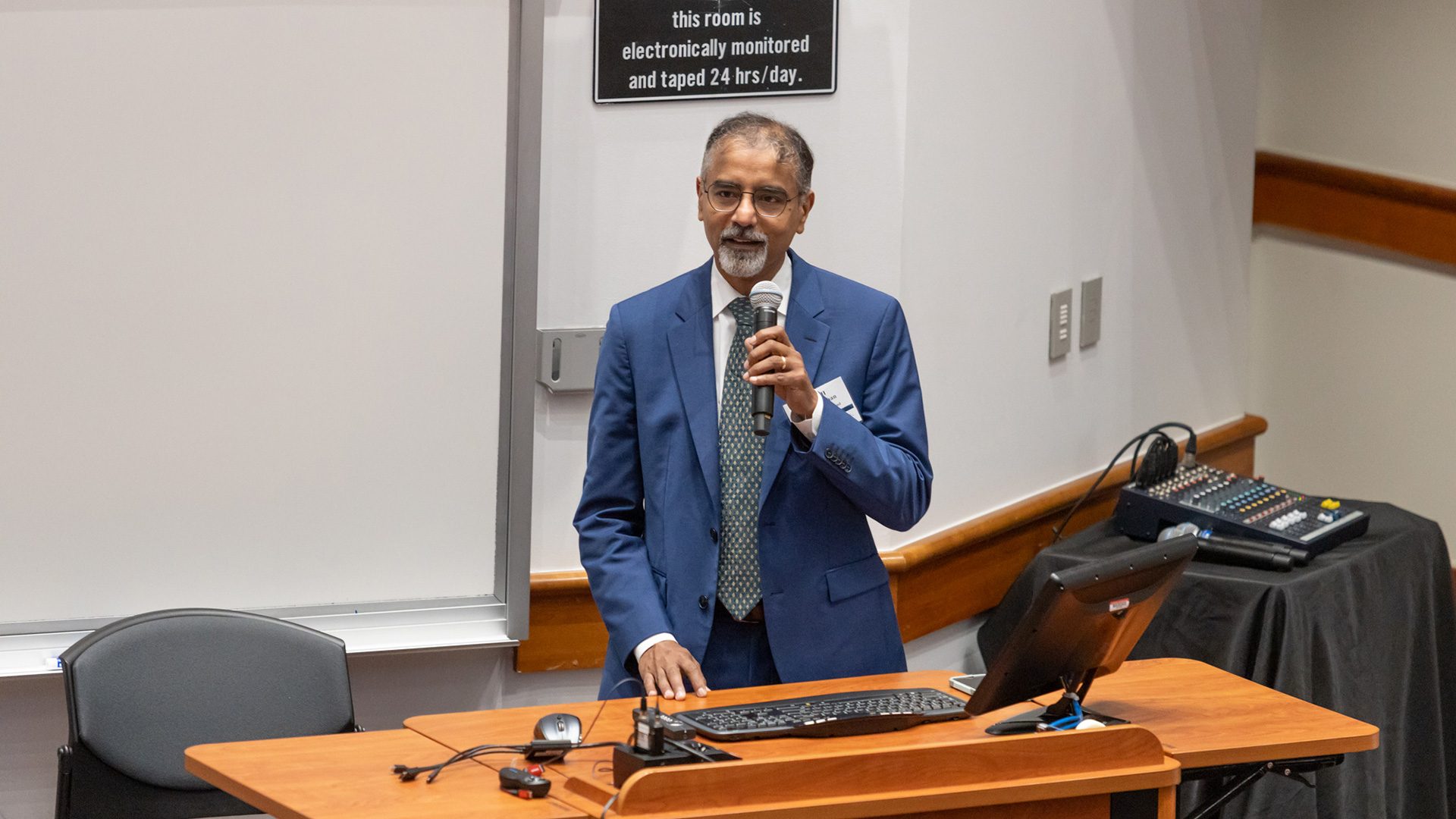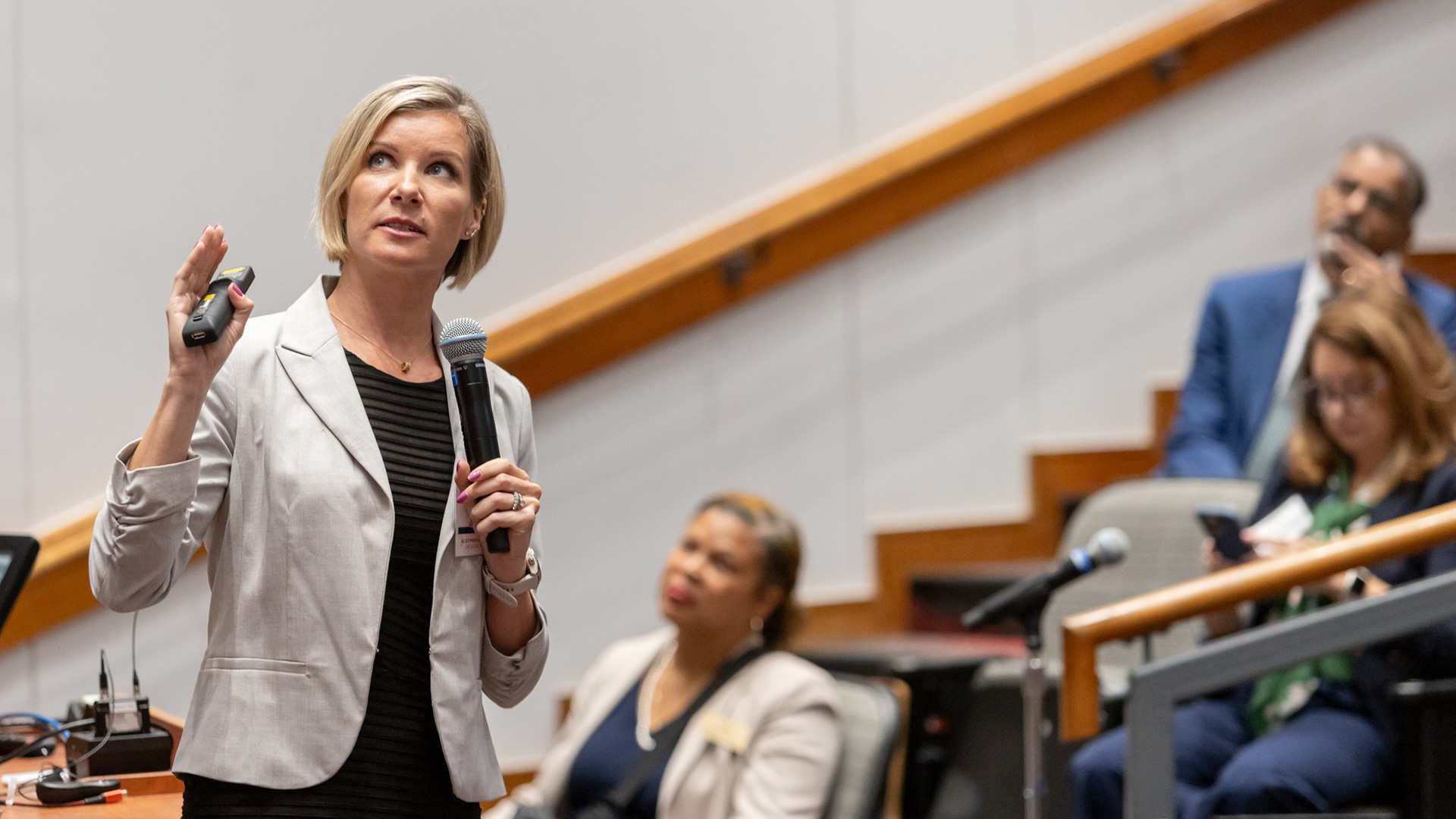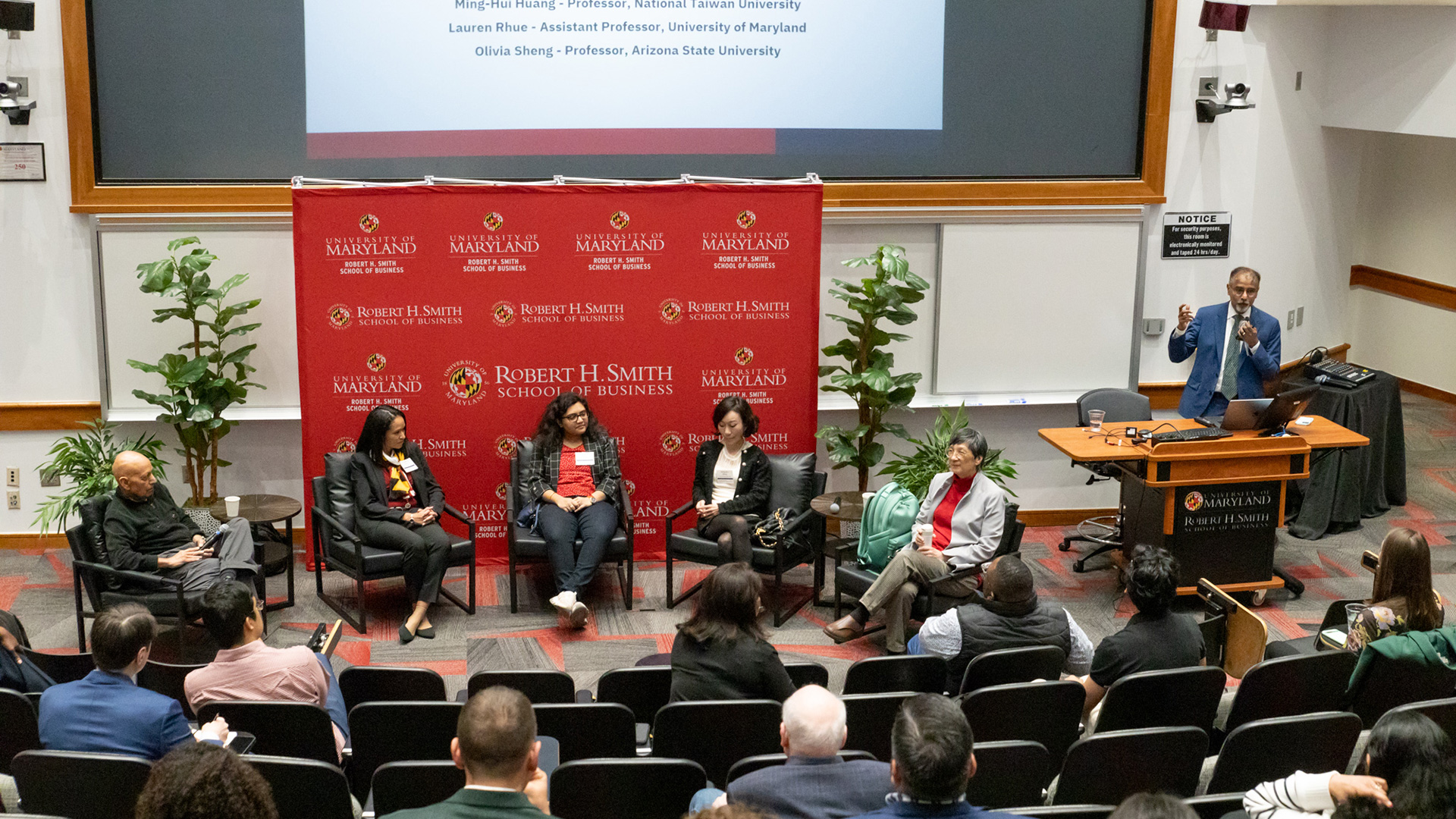
Pictured here: Director of Smith's Center for AI in Business, Balaji Padmanabhan
Professionals from business, government and nonprofit organizations gathered at the University of Maryland on April 4 to hear from top leaders in the field of artificial intelligence. The Robert H. Smith School of Business hosted its 2nd Annual AI Symposium on Design and Governance, where these experts shared their experiences with AI—the challenges and rewards, as well as strategies to harness its full potential.
“One of the things that is prompting us in the business school to do what we’re doing is the optimism among businesses about all of the beneficial things AI can do,” said symposium leader Balaji Padmanabhan, director of Smith’s Center for Artificial Intelligence in Business and Dean’s Professor of Decision, Operations and Information Technologies. “While large firms in the U.S. are doing some very interesting things with AI, they’re sometimes finding it difficult to make the technology work for them. We have to figure out how to improve this process.” Meanwhile, small businesses are less positive about artificial intelligence. Padmanabhan said, “Many of them think they’re being squeezed out by it.”

The first of the five featured speakers, Svetlana Bender, vice president of artificial intelligence and behavioral science at Guidewell, a nonprofit holding company that also runs Florida Blue, pointed out the huge impact that AI is having in the healthcare space, from drug discoveries and medical imaging to preventive care. “We see several opportunities when it comes to AI, and we want to play in every space when it comes to our members, providers and employees.” Guidewell has used artificial intelligence to create custom solutions like Guidewell Chat, an internally developed, regenerative AI chat tool. In developing it, data privacy and security were key concerns. “That’s why we built it within the company,” said Bender.
Governance and design were key themes at the symposium. Jen Gennai, partner and head of responsible AI at T3, who spent nearly two decades at Google leading responsible artificial intelligence, highlighted its main principles and stressed the connection to AI safety. She provided numerous examples of how AI systems often come up short on many of these principles, but argued that with good governance, it is fixable. Most importantly, doing so can be good for business. Continuing this line of thinking, but from a legal perspective, privacy and AI governance attorney Alexandra Moylan educated the audience on the plethora of legal implications that have come up globally in the AI space. In addition to nation-specific laws, Moylan noted there are increasingly state-specific regulations in AI to which businesses need to pay attention.
Soheil Feizi, founder and CEO of RELAI, and Evan Sekeris, Capital One’s Chief Model Risk Officer, both spoke about issues related to the design and evaluation of AI systems. Feizi highlighted how RELAI, his startup, built on his academic research at the University of Maryland, is helping businesses better deploy AI solutions for their many use cases. Creating internal test cases is a bottleneck, which he said can be addressed creatively through the design of new AI tools. On a similar theme, Sekeris drew the distinction between predictive and generative AI and highlighted the importance of carefully managing risk in these models, particularly in financial services.

Audience members asked the speakers questions during the symposium and in the second half of the program, they were answered by a panel that included Smith professors. An adjunct professor at George Mason University’s Costello College of Business who’s also a process engineer, asked about innovations that are incorporating AI into manufacturing. Lauren Rhue, an assistant professor of information systems at the Smith School, who has done extensive research on the economic and social implications of technology, said one of the biggest challenges with artificial intelligence is manufacturing feasibility. Because the technology can draw from everything on the internet she asked, “How do you make sure designs that are produced are in fact feasible to be manufactured?” Rhue compared it to the problem with generative AI hallucinations—instances where AI models produce incorrect, misleading or nonsensical outputs that are often presented as factual.
Panelist Anil Gupta, Michael D. Dingman Chair in Strategy and Entrepreneurship at Smith, said there are several reasons to use artificial intelligence in manufacturing. Two of them are defect detection and factory design. When it comes to detecting defects, “in real time on high-speed assembly lines, cameras and computer vision algorithms can do a far better job” than people can. In his latest research, Gupta is the lead in creating the world’s first AI-powered job mapping tool that tracks the creation of jobs in that field.
The panel also tackled questions about increased business access to data formerly only under government purview and America’s future role as an engine of innovation in the broader automation space.
In its second year, this conference continues to further the business school’s effort to bring together exceptional scholar-teachers and practitioners to equip current and future leaders with the tools to assess complex problems and deliver innovative solutions.
Media Contact
Greg Muraski
Media Relations Manager
301-405-5283
301-892-0973 Mobile
gmuraski@umd.edu
About the University of Maryland's Robert H. Smith School of Business
The Robert H. Smith School of Business is an internationally recognized leader in management education and research. One of 12 colleges and schools at the University of Maryland, College Park, the Smith School offers undergraduate, full-time and flex MBA, executive MBA, online MBA, business master’s, PhD and executive education programs, as well as outreach services to the corporate community. The school offers its degree, custom and certification programs in learning locations in North America and Asia.